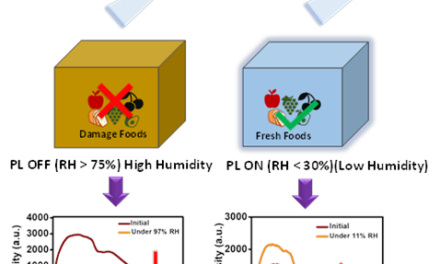Insights from National University of Singapore Hold Promise for Cancer Prevention
A groundbreaking study conducted by a research team from the National University of Singapore (NUS) has revealed compelling connections between diet, diabetes, and cancer risk, offering valuable insights for advancing cancer prevention strategies and promoting healthy aging.
Led by Professor Ashok Venkitaraman, Director of the Cancer Science Institute of Singapore (CSI Singapore) at NUS, the study sheds light on the intricate interplay between genetic factors and environmental influences, such as diet, exercise, and pollution, in cancer development.
“Cancer is a complex disease influenced by various factors in our environment, including diet. Understanding this connection is crucial for developing effective preventive measures to promote long-term health,” explains Prof. Venkitaraman.
The research, conducted in collaboration with colleagues from the NUS Centre for Cancer Research (N2CR) and the Agency for Science, Technology and Research (A*STAR), focused on elucidating the role of methylglyoxal, a chemical linked to diabetes, obesity, and poor diet, in heightening cancer risk.
Studying patients with a high risk of breast or ovarian cancers due to inherited mutations in the BRCA2 gene, the team found that cells from these individuals were particularly sensitive to the effects of methylglyoxal. This chemical was shown to induce DNA damage, serving as an early indicator of cancer development.
Moreover, the study revealed that individuals with elevated levels of methylglyoxal, such as those with diabetes or pre-diabetes associated with obesity or poor diet, may also face increased cancer risk. Importantly, methylglyoxal levels can be detected through routine blood tests, offering a potential marker for assessing cancer risk and guiding preventive interventions.
Dr. Li Ren Kong, the study’s first author, underscores the significance of these findings: “Our research highlights the impact of diet and metabolic disorders on cancer risk, providing insights that could inform personalized cancer prevention strategies.”
Furthermore, the research team’s work challenges a long-held theory about cancer-preventing genes, suggesting that methylglyoxal can temporarily inactivate these genes, contributing to tumour formation. This novel mechanism underscores the cumulative effect of repeated episodes of poor diet or uncontrolled diabetes on cancer risk.
Moving forward, the researchers aim to explore the impact of metabolic disorders on cancer risk in diverse populations, including Singapore and other Asian countries. Additionally, they seek to unravel new mechanisms underlying the link between metabolism, diet, and cancer, with the ultimate goal of developing more effective approaches for cancer prevention and management.
The findings of this study offer a glimpse into the complex relationship between lifestyle factors and cancer risk, paving the way for innovative strategies to combat this devastating disease and promote healthier lives worldwide.











